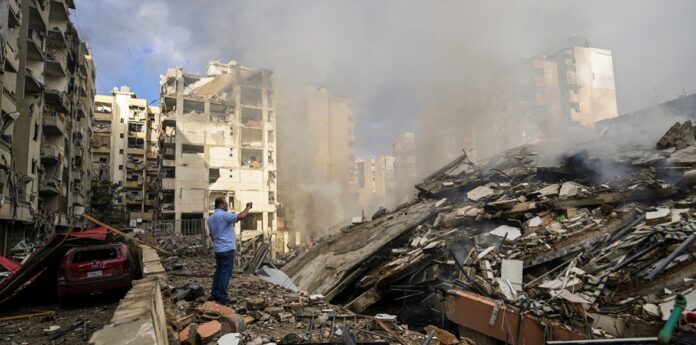MUMBAI: After the Hamas attack on October 7, 2023, which resulted in the deaths and kidnappings of hundreds of Israelis, Israel has been engaged in a fierce military campaign against Hamas in Gaza and the Palestinian territories. Over 40,000 people have lost their lives in Gaza, and hundreds more in the West Bank. While Israel has managed to partially dismantle Hamas’ military infrastructure, efforts to rescue kidnapped civilians and soldiers are still ongoing, with limited success so far.
Initially, Israel garnered substantial international support from its Western allies, allowing it to conduct extensive airstrikes on Hamas. However, as the conflict escalated and civilian casualties increased, global public opinion began to shift. Large-scale protests have erupted in Europe and the U.S., condemning the civilian deaths and destruction in Gaza, complicating Israel’s diplomatic standing. With U.S. elections approaching, further questions about support for Israel’s actions may arise, especially if tensions with Iran escalate.
The October 7 Hamas attack exposed significant intelligence failures within Israel, leading to devastating losses. Now, Israel is facing a growing global backlash due to the humanitarian crisis in Gaza, where homes, hospitals, schools, and civilians have been targeted.
The prospects of a prolonged conflict are increasing, as Israel finds itself in growing confrontations with Hezbollah in Lebanon and Iran. Israel has already retaliated with missile strikes, killing key figures like Hassan Nasrallah and Ismail Haniyeh. If Iran further escalates its involvement, it could lead to a broader regional war.
The barrage of nearly 200 Iranian missiles on Israeli cities has rendered Israel’s missile defense system ineffective, causing widespread destruction. It is likely that Israel and the U.S. will soon launch a full-scale retaliatory operation against Iran and its regional allies, raising the threat of a wider war in the Middle East. In this scenario, U.S. military assets will be crucial for Israel’s defense and counterattacks.
If Iran’s oil fields are targeted in retaliatory strikes, the situation will become even more dire. Iran’s already fragile economy would be severely impacted, prompting it to attack oil facilities in the Gulf states. This would disrupt global oil supplies, causing prices to spike and triggering economic shocks worldwide. Additional countries could become involved, leading to a broader regional war with significant global economic and political consequences.
In conclusion, one year after Israel’s war against Hamas began, the conflict has reached a critical juncture. Although Israel has achieved some military successes, the conflict has intensified, threatening regional stability and the global economy. With rising tensions between Israel, Iran, and Hezbollah, the situation remains highly uncertain, and the chances of a prolonged and wider war are increasing.
On October 7, the first anniversary of the war will be marked, and massive protests are expected in Israel against Prime Minister Netanyahu, who has failed to achieve a decisive victory against Hamas or meet his military objectives. Hezbollah, Iran, and the Houthi militia have also entered the fray, further complicating Israel’s situation. To divert attention and save his position, Netanyahu may opt for a major operation or attack against Iran. In the event of war, the U.S., Britain, and France will likely stand firmly with Israel, and little can be expected from the U.N. in terms of brokering a ceasefire. Where the situation will head remains uncertain. In a recent Friday sermon, Iran’s Supreme Leader Ayatollah Khamenei issued an open threat to Israel, boosting the morale of the Iranian people and their allies. The situation is critical, and we pray to Allah for the protection of the Muslim Ummah. Ameen.
Shaikh Saleem,
Welfare Party of India,
Mumbai.





